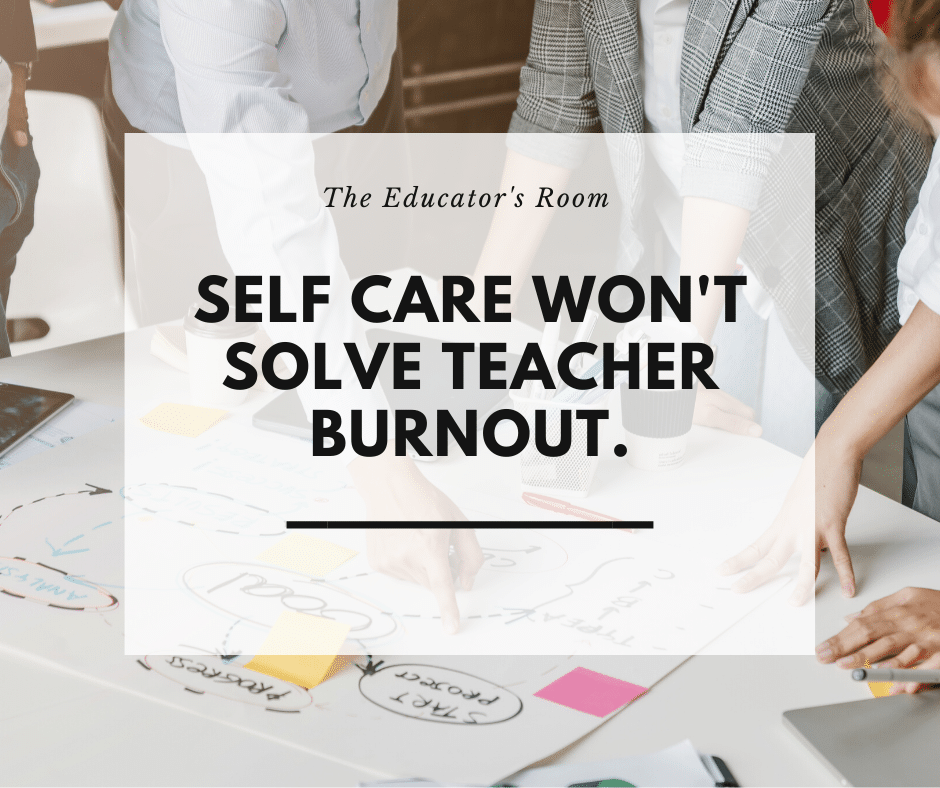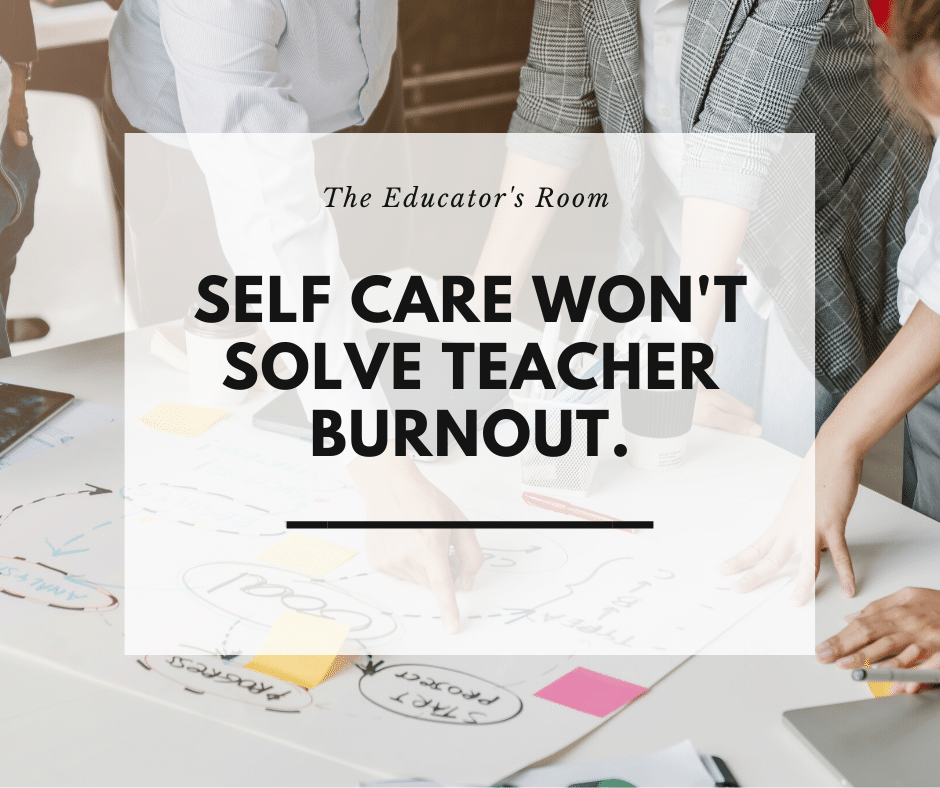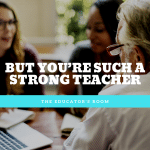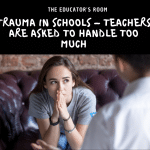The Self Care Trap
There was a time (I suppose we’re still in it) when an endless stream of “trauma-informed” initiatives passed through my Facebook feed, e-mail inbox, and classroom. A lot of these offered some variation of mindfulness training for teachers or students. Whether it was through yoga or meditation, numerous programs promised safer, calmer classrooms (and of course higher test scores). I remember my partner, Megan, remarking on the faulty logic of these initiatives. We’re finding lots of new ways to help kids cope with trauma, she pointed out but doing nothing to address their traumatic living and learning conditions.
I see educators today falling into a similar trap with the self-care movement. Educators today are feeling overwhelmed and stressed by numerous indicators. Whether it’s high stakes testing, school shootings, or exposure to firsthand or secondary trauma, there are plenty of causes of teacher burnout. In response, we’ve embraced “self-care.” But long walks, aromatherapy, and journaling will not save us.
A Better Solution to Burnout
For a more powerful solution, we should look to Chicago. For eleven days, Chicago teachers went on strike. They picketed for smaller class sizes, and more social workers, nurses, and librarians, in addition, to pay increases. The logic of the Chicago Teachers’ Union strike is the logic all educators (and American workers) must embrace: We are not to blame for feeling stressed and burnt out. We must find ways to take care of ourselves and each other. However, we cannot feel responsible for the harmful effects of living and teaching in a profoundly unequal society.
I don’t mean to say self-care and organizing are mutually exclusive. Self-care is essential, especially for folks of color and other marginalized people dealing with an accumulation of trauma and stress caused by racism, patriarchy, and other forms of oppression. And in order to sustain ourselves in a long fight against systemic forms of oppression, it is important to rest, recuperate, and to nurture ourselves.
But ultimately, self-care is a tool for treating the symptoms of trauma. Organizing, to paraphrase Angela Davis, means “grasping things at the root.”
I’m currently teaching at a school where I feel as burnt out as ever. I have taken on a lot of different strategies to manage the stress of my working environment. My reading, cooking, and guitar playing are all great for my mental health. But they will not change the environment for myself, my colleagues, or the children we serve.
[bctt tweet=” I believe if our school’s union chapter was functioning healthily, we could address many more of the “roots” of our toxic environment.” username=””]
I believe if our school’s union chapter was functioning healthily, we could address many more of the “roots” of our toxic environment. It would be messy and difficult to come to a consensus as roughly 40 adults with different perspectives and experiences. But on the other side, we could speak up in a united and powerful voice against the environment of high pressure and limited support.
If we were to organize wider and deeper, we could address the deeper roots of our stress. This means working with principals, families, and other members of our community. While I hold my principal partly responsible for our school’s culture and climate, much of it is beyond her control.
She cannot ensure every child in our school enters the building with a full belly and good night’s sleep. She cannot ignore the city and state’s callous preoccupation with our children’s test scores. In order to address these deep social issues, my school community would have to build power capable of fighting back. Organizing builds power, not scented candles or Sip ‘n Paint excursions.
I am grateful for the self-care movement that has emerged. The need for teachers to embrace work-life balance is crucial. But as long as we put the onus of treating our burnout on ourselves, the change will not come.
It is time for us to organize with our colleagues and our communities and demand different conditions. The people in power – our principals, our district leaders, our state and federal policymakers – are responsible for the burnout epidemic, not us.








Hi Ruben,
I really appreciate this take on self-care and the stress that teachers are under. I am currently a student in a teacher prep masters program and it is extremely intense. Oftentimes, professors will tell us “make sure you practice self-care,” but that doesn’t seem like enough to handle such an intense program. What are the professors and administrators themselves doing to ensure their student’s wellbeing in our program?
I think the same thing applies to teachers in schools. Administration and other members of society can recommend that teachers practice self-care, and while it can be helpful, it is just a bandaid on much bigger problem. What can we do to actually address the roots of this issue? I love that you bring up this idea of organizing and actually creating this tangible change in toxic patterns and structures in schools. This needs to be at the foreground of the self-care talks.